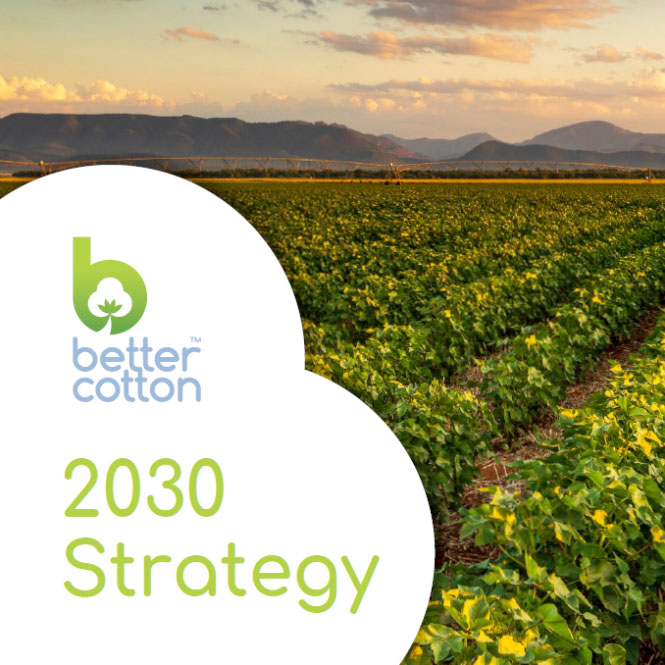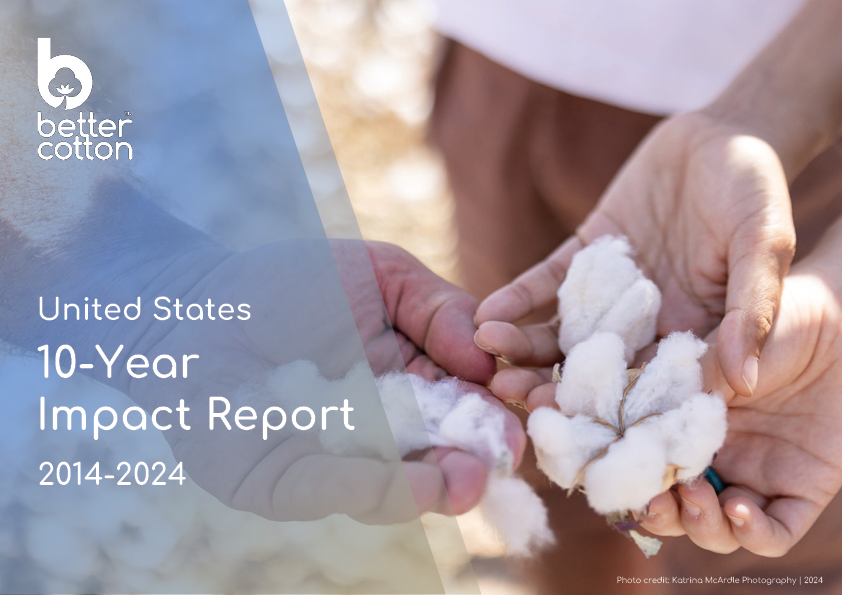- Who we are
- What we do
In just over 10 years we have become the world’s largest cotton sustainability programme. Our mission: to help cotton communities survive and thrive, while protecting and restoring the environment.
- Where we grow
Better Cotton is grown in 22 countries around the world and accounts for 22% of global cotton production. In the 2022-23 cotton season, 2.13 million licensed Better Cotton Farmers grew 5.47 million tonnes of Better Cotton.
- Our impact
- Membership
Today Better Cotton has more than 2,700 members, reflecting the breadth and diversity of the industry. Members of a global community that understands the mutual benefits of sustainable cotton farming. The moment you join, you become part of this too.
- Associate Membership
- Civil Society Membership
- Producer Organisation Membership
- Retailer and Brand Membership
- Supplier and Manufacturer Membership
- Find Members
- Member Monitoring
- Better Cotton Platform
- myBetterCotton
- Resources – Better Cotton Conference 2022
- Complaints
- Whistleblowing
- Safeguarding
- Get Involved in the Better Cotton Programme
- Thank you for contacting us
- Better Cotton’s Data Privacy Policy
- Log in
- Members’ Area
- Request for Proposals
- Better Cotton Cookie Policy
- Web Reference
- Measuring Cotton Consumption
- How to Implement the Chain of Custody Standard
- Resources – Better Cotton Conference 2023
- Certification Bodies Old
- Latest
- Sourcing
- Latest
The founding premise of Better Cotton is that a healthy sustainable future for cotton and the people that farm it is in the interests of everyone connected with it.
Let us help you find what you’re looking for
Results for {phrase} ({results_count} of {results_count_total})Displaying {results_count} results of {results_count_total}
Over the coming months, Alan McClay, Better Cotton Initiative CEO, will be sharing thoughts and insights through a blog series about the impact of the Covid-19 pandemic on cotton farming communities and the sector as a whole. Now, more than ever, the cotton and textile sector must come together to support one another and share the burden so that we can mitigate the damages and emerge on the other end of this crisis.
In the first blog of the series, McClay explores the importance of protecting those at the origin of the supply chain — cotton farming communities — and why we must work together to promote a sustainable recovery.
We Must Protect Farmer Livelihoods and Build Resilience Collectively
The impact of the Covid-19 pandemic on our lives and on the global economy has been amply documented. I will not repeat here the information or headlines found round the world that document the profound and lasting consequences across all sectors of society. In short, the impact on health care systems, economies, social capital and beyond is real and devastating.
BCI exists to improve farmer livelihoods through the adoption of more sustainable practices. I propose to bring the farmers to the centre of this conversation and share a few insights that are crucial for the cotton and textile sector to consider during this period.
- First, Look Upstream to the Origin of the Supply Chain
More than 250 million people worldwide – mostly in developing countries – depend on cotton farming for their livelihoods. 99% of them are smallholders. Most smallholder farmers enjoyed little economic stability prior to this health crisis and have no safety net to fall back on.
Consumption patterns are shifting, and cotton prices have dropped significantly. Movement restrictions in many regions are affecting access to seeds, fertilisers and other inputs. These same restrictions may also impact the ability of farmers to gain access to labour from the community and to hire seasonal workers during harvest. Beyond this, smallholders are an at-risk, ageing population, and most are based in poor, rural communities where social distancing and protective health measures are simply not feasible.
BCI is taking steps quickly to leverage our vast networks of partners, farmers and farm workers to promote physical and economic health. (I will share details of this in my next blog.)
- Responsible Business Conduct Is Important Now More Than Ever
Nearly all high street brick and mortar retail, including fashion, closed from one day to the next. Demand has been decimated.
With a view to the recovery which will eventually arrive, as a sector we need to protect the future of businesses throughout the textile and fashion supply chain. Companies at all stages need to investigate how to support their suppliers’ payment conditions, and in turn, work for some flexibility in their own obligations. Many western governments are offering compensation for companies who will have had to put some or all staff on furlough. The breathing room that the cash provides can be used to help the beneficiaries’ trading partners up and down the supply chain with easier payment terms, trade financing or other tools and techniques to facilitate each player’s chance of survival.
If this does not happen, the effects will be devastating for large swathes of the value chain, and ultimately trickle up to impact one of the most vulnerable pieces of the puzzle – cotton farming communities.
- Call to Action: Build Resilience through Unity
I would like to underscore the importance of facing this crisis together and working in concert throughout the sector to mitigate the damage, share the burden and support the whole supply chain in seeing through the crisis so that we can all emerge on the other side of this. The best way for us to make a solid and sustainable recovery is to meet the crash and the constraints it has imposed – together.
We know that all of us need to manage a severe downturn now. However, we also know that we can build a strong recovery if we all work together. BCI is committed to doing that and is open to considering all kinds of creative thinking in order to support farming communities during, and long after, this crisis. We shall share some of that thinking in the next blog.
This is the first of a series of blog posts from Alan McClay, BCI CEO, which will be shared on the BCI website over the course of the next few months.


